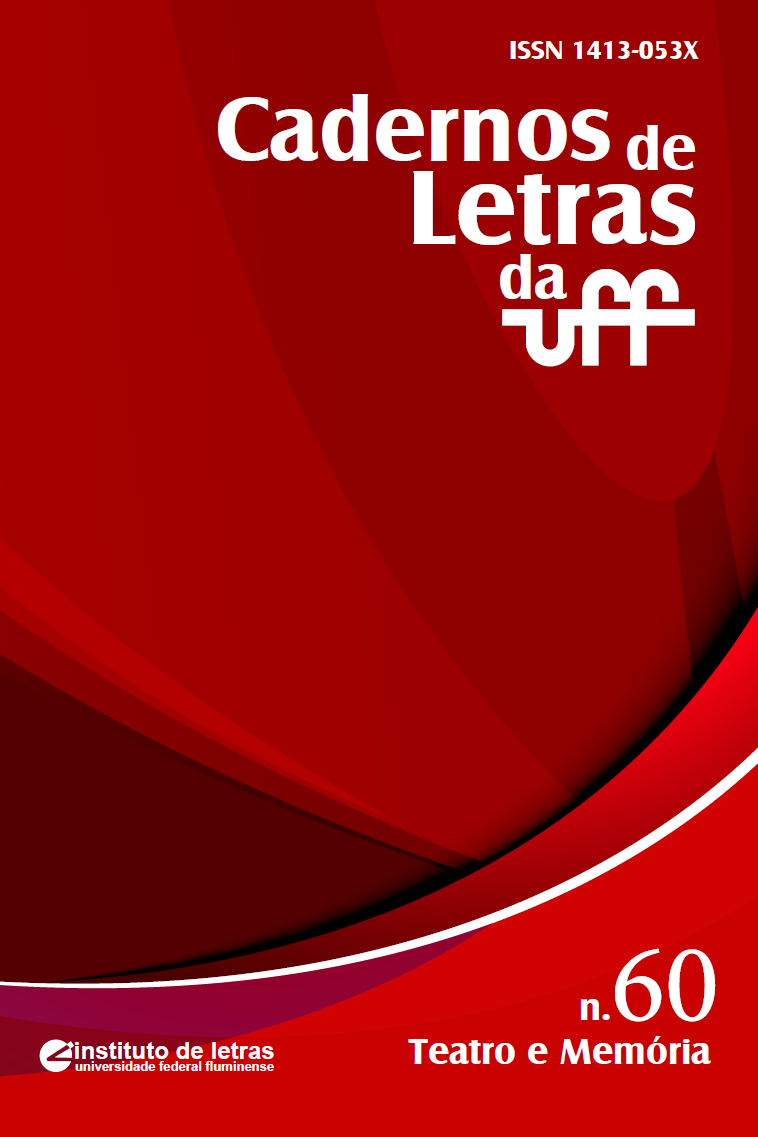The violence of time: a game between memories in Endgame
DOI:
https://doi.org/10.22409/cadletrasuff.2020n60a761Palavras-chave:
literatura, estudos de literaturaResumo
In his play Endgame, Samuel Beckett explores individuals divided between the simplicity and the complexity of mind and body. Therefore, based on Ricoeur’s concepts of memory and body (1968; 2007), this article aims to analyze the knowledge from the self and the other in the play, and how dependent they are on each other and their memories.Downloads
Referências
BECKETT, Samuel. Endgame. London: Faber and Faber, 1958.
BERRETTINI, Célia. A linguagem de Beckett. São Paulo: Perspectiva, 1977.
BONA, Aldo Nelson. História, verdade e ética: Paul Ricoeur e a epistemologia da história. Guarapuava: Unicentro, 2012.
RICOEUR, Paul. História e Verdade. Tradução F.A. Ribeiro. Rio de Janeiro: Companhia Editora Forense, 1968.
______. A memória, a história, o esquecimento. Tradução Alain François [et al.]. Campinas, SP: Editora da Unicamp, 2007.
WORTON, Michael. Waiting for Godot and Endgame: Theatre as text. In: PILLING, John. (ed). The Cambridge Companion to Beckett. Cambridge: Cambridge University Press, 1994.
Downloads
Publicado
Edição
Seção
Licença
Autores que publicam em Cadernos de Letras concordam com os seguintes termos:
Os autores mantêm os direitos e cedem à revista o direito à primeira publicação, simultaneamente submetido a uma licença Creative Commons CC-BY-NC 4.0, que permite o compartilhamento por terceiros com a devida menção ao autor e à primeira publicação pela Cadernos de Letras.
Os autores podem entrar em acordos contratuais adicionais e separados para a distribuição não exclusiva da versão publicada da obra (por exemplo, postá-la em um repositório institucional ou publicá-la em um livro), com o reconhecimento de sua publicação inicial na Cadernos de Letras.






